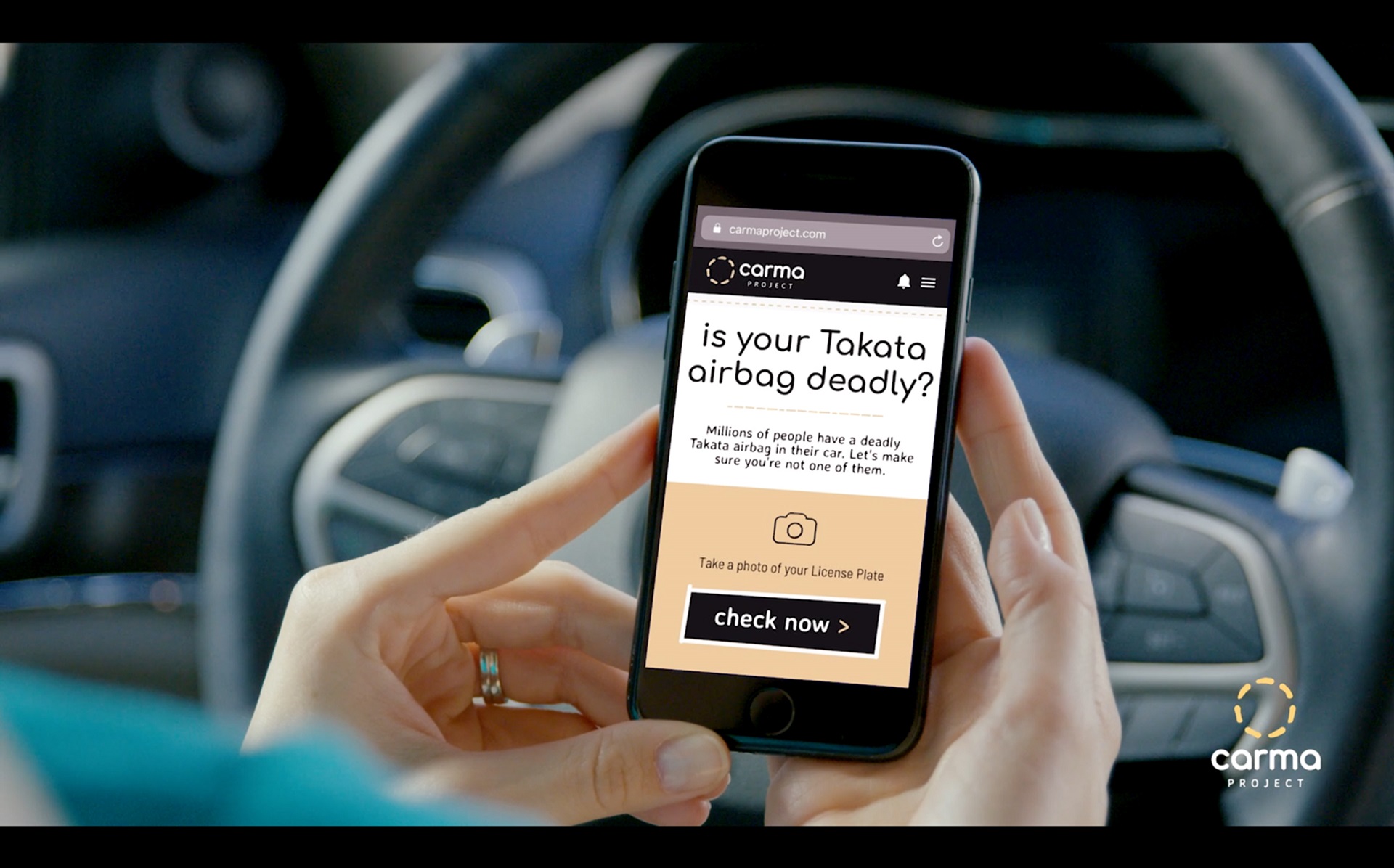

Toyota’s Carma Project is a new app that plans to radically increase awareness for the Takata airbag recall. The new initiative launched Wednesday and it marked the first time a social and incentive-based program has been used to accelerate customers’ response to a recall.
By using peer to peer engagement and getting friends to reach out amongst their social circles, Carma hopes to drive results and incentivize people to spread the word about the Takata airbag recall. And while this may sound totally millennial and almost silly, it’s admittedly extremely clever.
“We know that friends and family can play a powerful role in influencing how people make decisions about safety,” said Tom Trisdale, Toyota Motor North America’s Vice President of Product Quality and Service Support. “Our partnership with Carma Project is designed to motivate and incentivize people to share critical information about the recall, including how to get the remedy for free.”

The Carma Project is all about people helping people to alert them of life-threatening automotive recalls. Using the trust that comes from friends and family relationships and word of mouth communication, and a game design that includes incentives, Carma hopes to connect Toyota with hard-to-reach owners who have yet to respond to the Takata recall.
The Drive spoke with Carma Project CEO Fabio Gratton, who shared that this project “is the result of about a year’s worth of work and a great partnership with Toyota.” Gratton claims Toyota heard about the work he had previously done in the healthcare industry and approached his company to try and create something that would work in the automotive world. Toyota signed on as a founding sponsor and is currently funding the rewards program. Eventually, Carma Project hopes to get more manufacturers on board and possibly expand to other automotive recalls. But for now, their main focus is the Takata airbag recall.
“We’ve built a similar solution in healthcare and have seen it work,” said Gratton. “Companies struggle to identify participants for clinical trials because they are hard to find and oftentimes ignore industry outreach. But a friend or a family member has that trust, access, and influence to ensure that those people learn about these trials and ultimately receive those potentially life-saving medications. We’re confident that this approach will work in the automotive world, especially when combined with our incentive model.”
